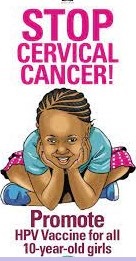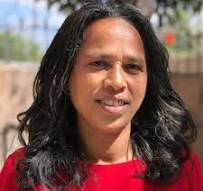
Cervical cancer remains a major health issue among low-and middle-income countries because of its high morbidity and mortality rates among women. The primary cause of cervical cancer is a virus known as, Human papillomavirus (HPV), and its prevalence in Africa is high.
However, initiatives between and among various actors including MSD and Gavi, the Vaccine manufacturers and working to improving global health security by supporting health systems, together with the efforts of health ministries, may significantly reduce the burden of this preventable disease.
According to documents, HPV is the most prevalent sexually transmitted infection worldwide that affects both sexes. In Africa, the virus has a prevalence of about 24 percent, which corresponds with the high rates of cervical cancer in the region. Gavi, in partnership with MSD, has ambitions to vaccinate millions of young girls in a bid to provide the vital preventive measure. Historical data also show that HPV vaccination has proved to be more than 90 percent effective in preventing cervical cancer, which makes the vaccine more critical in improving public health initiatives.
The World Health Organization (WHO) indicates that Africa bears a disproportionate share of the global cervical cancer burden. In 2020, it accounted for 21 percent of cervical cancer deaths in the world. If timely action is not taken, deaths from cervical cancer could increase to 400,000 by 2030, with an increasing share from Africa. Therefore, vaccination combined with effective screening and early detection is the most viable approach to turn the tide on this trend.
During a recent program where cervical cancer prevention was launched, Health Minister, Mekdes Daba (MD), reassured those attending the program that her Ministry is working committedly toward reducing the incidence of cervical cancer through systematic vaccination and early detection. Mekdes said that in Ethiopia, more than 8,000 women are diagnosed with cervical cancer every year, while over 5,000 dye due to late-stage diagnosis. She reiterated the Ministry’s commitment to eradicating preventable deaths from treatable diseases.
Targeted vaccination programs for girls under the age of 15 were launched by the Ministry of Health, and the primary goal is to reach 86 million adolescent girls with the HPV vaccine by 2025. The awareness-raising activities are paramount however; they require the willingness and support of community stakeholders such as religious leaders, parents, educators, and the like to aid in persuading people to get inoculated.
Assistant Prof. of Clinical Oncology Abraham Adamu (MD) also expressed his insights regarding screening and treatment in the fight against cervical cancer. “Screening is for people with no signs or symptoms of the disease. Treatment is for those with obvious signs and symptoms that can be attributed to cervical cancer,” he explained. Dr. Adamu also clarified that treatment can be offered at any age once one has been diagnosed with the case, whether the patient is between 30 and 45 years old or even younger.
According to him, the treatment would depend on various factors including the patient’s general condition, the state of the disease, and even logistical issues. In most cases, however, he noted, the disease is often diagnosed at an advanced stage, so treatment options commonly involve chemotherapy, radiotherapy, and possible surgery. “These treatments are expensive,” he emphasized, highlighting the need for early screening and treatment. He also uttered that vaccination is the best way to prevent most cases from developing.
Emily Kobayashi of Gavi spoke very passionately about the critical importance of protecting young girls and women from HPV through vaccination. She said that cervical cancer is an avoidable, but a killer disease, however, Gavi has so far protected over 40 million people across the world. The current estimated percentage for HPV vaccination in Africa is approximately 32 percent. Owing to this, there is an urgent need for outreach and education.
In connection with this, Kobayashi said: “Reaching the ambitious goal to vaccinate 86 million girls by 2025 requires partnerships at all levels- religious leaders, parents, educators, and community organizations. Only together can we envision a future where cervical cancer will cease to be a threat to our adolescent girls.”
She also spoke about the various myths associated with vaccination against HPV, saying, “We must dispel the fears surrounding vaccination. Gavi ensures that the HPV vaccine will be safe and effective through rigorous testing and WHO support. Education holds the key to showing the communities that the benefits far outweigh the myths.”
Gavi has played a pivotal role in distributing HPV vaccines across various African nations. With more than 40 million individuals vaccinated globally, Gavi aims to achieve a 90 percent immunization rate to combat cervical cancer.
Currently, only around 32 percent of girls in Africa have received the HPV vaccine, suggesting substantial opportunity for growth.
Addressing vaccine hesitancy is very crucial for HPV vaccination efforts. Dr. Emily Kobayashi emphasized reassurance regarding the safety and effectiveness of the vaccine, as evidenced by extensive WHO reviews. “Education to dispel the myths about HPV and its vaccine will be important in gaining trust by the public and promoting vaccination,” she reiterated.
Cervical cancer is a serious public health problem; however, this cooperation among MSD, Gavi, and health authorities at the local level marks a form of prevention. By serving the community’s needs, overcoming misinformation, and making vaccination and screening accessible on equal terms, the burden of cervical cancer can be significantly reduced. By doing so, we can ensure that no girl will have to suffer from a disease that is almost totally preventable.
BY STAFF REPORTER
THE ETHIOPIAN HERALD THURSDAY 26 DECEMBER 2024




